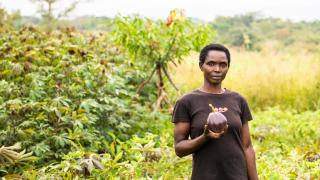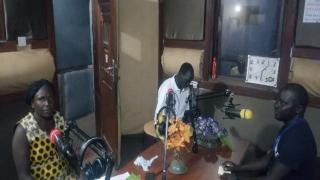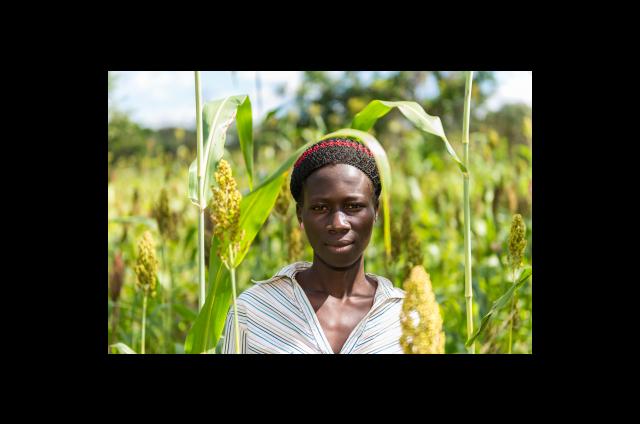Coronavirus and women in South Sudan
The Coronavirus pandemic has highlighted an increased need for Women for Women International’s work with women survivors of war because they are being disproportionately affected in numerous ways.
Prominent female leaders such as Angela Merkel and Jacinda Ardern have been praised for their effective, measured responses to COVID-19. Yet the vast majority of women have little access to decision-making forums that guide COVID-19 response and recovery. This is especially true for marginalised women in conflict-affected countries like South Sudan.
In South Sudan and other fragile settings where we work, traditional gender roles mean that women do the majority of family caregiving. With limited access to health services or accurate information about infectious diseases, they are less able to protect themselves and their families.
Women’s income and livelihoods have also been hardest hit by COVID-19 prevention measures.The women we serve often rely on informal employment like subsistence farming or trading at local markets. They do not have the luxury of being able to self-isolate or work from home, and there is no government assistance for lost earnings.

Added to this, the closure of schools means an increased burden of childcare falls on women, leaving them with less time to earn. This pushes them and their families deeper into poverty.
At times of conflict and crisis, we see how violence against women and girls spikes – this includes domestic violence, child marriage, and sexual exploitation. The same trend is happening with COVID-19. Lockdown measures are confining women in dangerous domestic situations, and they are unable to access the support and services they need.
Peace has just come and schools were opened and children are supposed to go school, but Coronavirus says 'No - stop your peace and this is the end to your children’s education'.

South Sudan has had a difficult past, but our programme staff and the women they support there are doing everything in their power to meet the challenge that COVID-19 is presenting.
As the virus approached the country, participants and staff used their regular call-in radio show to share health advice and inform people about COVID-19.
Before the pandemic started, our team had been using radio broadcasts to amplify key messages on issues affecting women and engage communities, so this was an ideal platform to warn women and their communities about the imminent impact of COVID-19.
Throughout April, they joined weekly broadcasts with health experts, members of the Ministry of Health, and World Health Organisation coordinators to educate listeners on a range of topics surrounding the outbreak.
Handwashing in South Sudan is limited due to a lack of water and soap. Staff were able to distribute soap to many programme participants. They also obtained portable handwashing stands for the training centres.
Health is made at home and it is our responsibility to take leadership together using training we got from Women for Women International with our husbands to ensure we practice good hygiene to fight this Coronavirus.
We need your support to ensure women survivors of war like those in South Sudan don’t continue to get left behind. The global pandemic has reached and affected us all and changed our lives as we know them. For some of us, we can personally understand the impact of social isolation, financial hardship and limited access to healthcare.
We are urgently appealing for more funds to support our programmes in conflict affected countries like South Sudan during this difficult period. There is a critical need to provide women survivors of war with the skills, resources and confidence to help them and their communities survive through the pandemic and build back better. Please give today.

